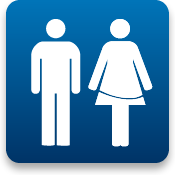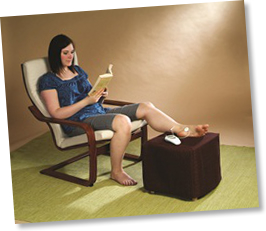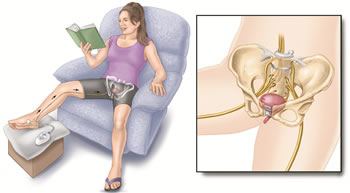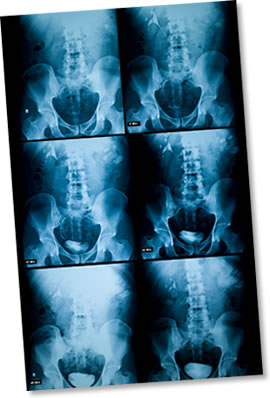Common Conditions
Urgency and Cystitis

Women of all ages have can have problems with their bladder. Common symptoms include:
- Frequency – going to the toilet more often than you would like to
- Nocturia – having to get up to pass urine during the night
- Urgency – having to rush to the toilet
- Incontinence – leaking urine (Click here for information on incontinence)
- Infection
Mr Hextall has expertise in treating all these conditions and would be happy to help if you are having one of the above problems or other concerns. To make an appointment please click here or feel free to contact us.
Urgency is when a patient develops a sudden, compelling feeling that they want to pass urine. Sometimes the urgency can be so powerful that urine starts to leak before reaching the toilet – a condition called urge incontinence. Many women notice that these problems occur when they listen to running water, wash their hands or put their key in the door.
Common causes of urgency
Often urgency occurs because the bladder is irritable or overactive – a condition known as detrusor overactivity. However, there are a number of other common causes of frequency and urgency:
- Drinking too much (or too little) fluid
- Caffeinated drinks (e.g.) coffee and tea
- On overactive bladder (Click here for information on urge incontinence)
- Urine infection
- Prolapse
- Lack of oestrogen after the menopause
- Medication (e.g.) diuretics / water tablets
What treatments are available?
There are a range of treatments available depending upon the underlying cause. Mr Hextall is happy to discuss these in detail.
Posterior Tibial Nerve Stimulation (PTNS) is a new treatment for urinary frequency and urgency, most commonly caused by an overactive bladder. It is now available under Mr Hextall's care at St Albans City Hospital (NHS) and is undertaken by one of the 3 excellent Urogynaecology nurse specialists working there.

PTNS is a form of neuromodulation which can be used with, or as an alternative to, other treatments such as fluid modification, bladder retraining and anticholinergic medication.
The treatment targets the tibial nerve in the ankle and modifies the nerve impulses sent to the bladder which contribute to the development of urgency. A small acupuncture needle is inserted into the ankle near the Tibial nerve and is then connected to a stimulator device.

At the end of twelve 30 minute outpatient sessions, usually undertaken once or perhaps twice per week, there is a 70-80% chance of improvement. Sometimes further "top ups" are given depending upon the initial response. Patients have some slight tingling when the needle is inserted but then do not feel anything while the treatment is taking place.
Side effects are minimal and so far the treatment has been very well tolerated.
Are there people who should not use Urgent PC?
- Patients with pacemakers or implantable defibrillators
- Patients prone to excessive bleeding
- Patients who are pregnant or planning to become pregnant during the duration of the treatment
PTNS has recently been approved by NICE and is now one of range of therapies Mr Hextall offers at St Albans City Hospital (NHS) for urinary urgency and urinary incontinence.
Please click here for further information.

Women are much more likely to develop cystitis compared to men - mainly because their water pipe (urethra) is shorter and it is easier for bacteria to reach the bladder to cause an infection.
Common symptoms of cystitis
Cystitis can cause a number of symptoms including:
- Frequency
- Discomfort on passing urine
- Offensive smelling urine
- Pain in the bladder - particularly when trying to hold on.
What treatments are available?
A number of simple treatments can sometimes help:
- Drinking a reasonable amount of fluid each day
- Cranberry juice - a couple of glasses each day can help prevent bacteria from growing in the urine
- Good hygiene - although excessive washing does not help
- Passing urine after sexual intercourse
Often a urine sample will confirm an infection and a course of antibiotics will clear the problem. However, many women will go through a phase where they have frequent infections and require several courses of antibiotics. Investigations to look for an underlying cause may be needed - these include ultrasound, X-ray and flow tests to make sure the bladder is emptying properly. Sometimes it is also necessary to perform a Cystoscopy to look inside the bladder.
Is cystitis always caused by infection?
Cystitis can occur even when there has been no definite infection - or when infection has been suspected but repeated urine samples are clear. This is often due to inflammation or soreness of the skin inside the bladder. Mr Hextall is happy to help in these circumstances and can offer a variety of different treatments.




